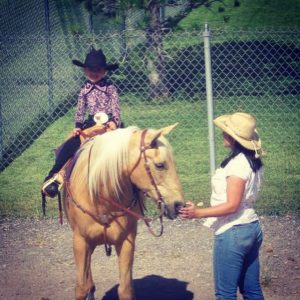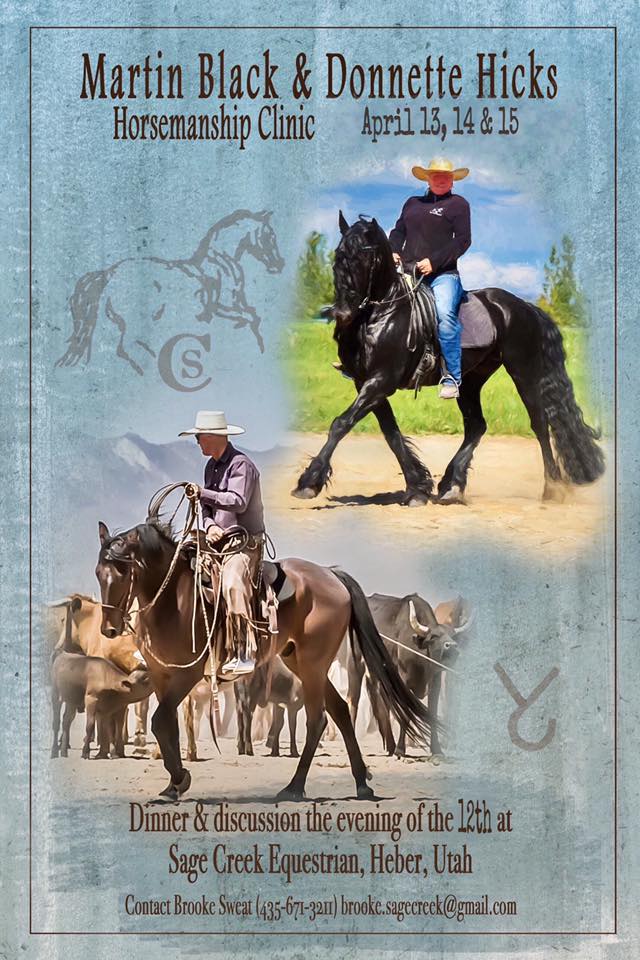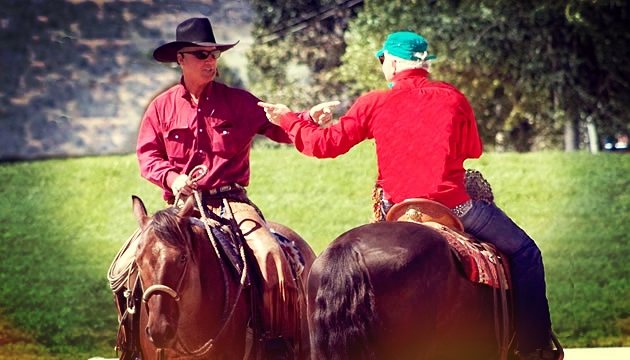I grew up in a small town in Southern Utah. The main focus there was for the youth to play sports. The kind of sports that had absolutely nothing to do with horses. If you were a part of the horse community, it was because our family owned a ranch and you learned to ride out of necessity. This necessity rang true for me, as a significant amount of our family time was spent following our generational example of hard work on my Grandpa’s cattle ranch.

With ranching as the background in our local horse community, rodeo became the escape that many of us turned to as a pastime. There was definitely no lack of cow horses or, my personal favorite, hot speed demons, at every jackpot, high school rodeo or 4-H event. In fact, being awarded a blue ribbon in any of the slower events during a 4-H Show could cause a drastic drop in status. I proudly accepted this status drop at every show.
Horses quickly became a passion for me, and I sought for knowledge in a wide variety of events. During this time, I remained loyal to my heritage & enjoyed participating in every type of western competition available to me. For nearly three decades, I rode in the education I had gained. I passed my knowledge down to my children, my friend’s children and anyone that came to me for a piece of advice. I held confidence in my abilities and rarely felt as if I was coming up short.
Then everything changed. I was offered the Barn Manager position with a facility that specializes in horsemanship education. With the acceptance of this new venture, I was also given the opportunity to lesson with one of the owners, Donnette Hicks. The excitement I felt in presenting my abilities was quickly overpowered, and for the first time in 27 years, I came up short in my saddle.
Donnette was not about to leave me devastated in my short comings, and assured me that my feelings of tossing all of my hard earned knowledge in a bucket and completely starting over was not necessary. Through her compassion and generous leadership skills, she would guide me in my willingness to learn and back to my confidence.
I later came to learn that this same compassion in leadership had been shown to her, many years earlier, on her very first day as ranch cook on the Winecup Ranch. She too, had shown up for a new venture with excitement and confidence that was quickly overpowered, as a group of men filled the cook house in search of a breakfast that could sustain their work day. Martin Black, the Winecup Ranch Manager, a young man roughly her same age, stepped in to help manage the grill.
Donnette says: “I found myself observing everything about Martin, from his work ethic to his horsemanship– he inspired me.” From this admiration, a friendship began, and in time, an incredible partnership developed.
Martin Black and Donnette Hicks offer unique, one of a kind clinics. Each individual clinic, through it’s diversity, takes on a life of it’s own. Both Martin and Donnette, are able to see where riders and their horses are at in the clinic, hand formulate their next layer and guide them through these layers in ways that every participant is able to benefit from.
This incomparable approach comes from the versatile knowledge that Martin and Donnette are able to share through their own personal backgrounds and education.
Martin’s background of ranching, cattle, colt contracting, competition, clinician experience and an in-depth knowledge of ultimate horsemanship, merged with Donnette’s, more than 30 years of horsemanship experience, and 20+ years of advanced education through the Grand Prix Levels of dressage, is sure to offer the potential for anyone to move forward in their relationship with horses.
Martin and Donnette stand firm in their belief that: “Good Horsemanship is Good Horsemanship; regardless of Discipline or Breed.”
Martin feels that a lot of the maneuverability of a dressage horse is also what he likes to have in his cow horses, “We need to be able to position the body and feet in numerous ways for either discipline. The tack we have on them, does not make any difference to the horse, only the people.” He goes on to say, “What Donnette and I do with our horses is much the same, and how we get them there is much the same also. The biggest difference is, we just have different terminology for the same thing.” Martin then acknowledges this rare partnership by saying, “It’s not often that these two worlds can get past their prejudice to work together; but Donnette and I can look past the costumes and see it as one world.”
As for myself, my journey will continue. I feel that one of my most important realizations thus far has been that, Horsemanship is not a skill or a technique to be learned and then applied. Horsemanship is a way of living… a way of being… a way of existing; and when you find your balance, your soul will be fulfilled.
I have gained incredible knowledge and still have many wonderful things yet to learn. The education that I have in front of me, the very same education that is available to all those yearning to posses it, has provided me with the blessing of no longer feeling that I am coming up short.



